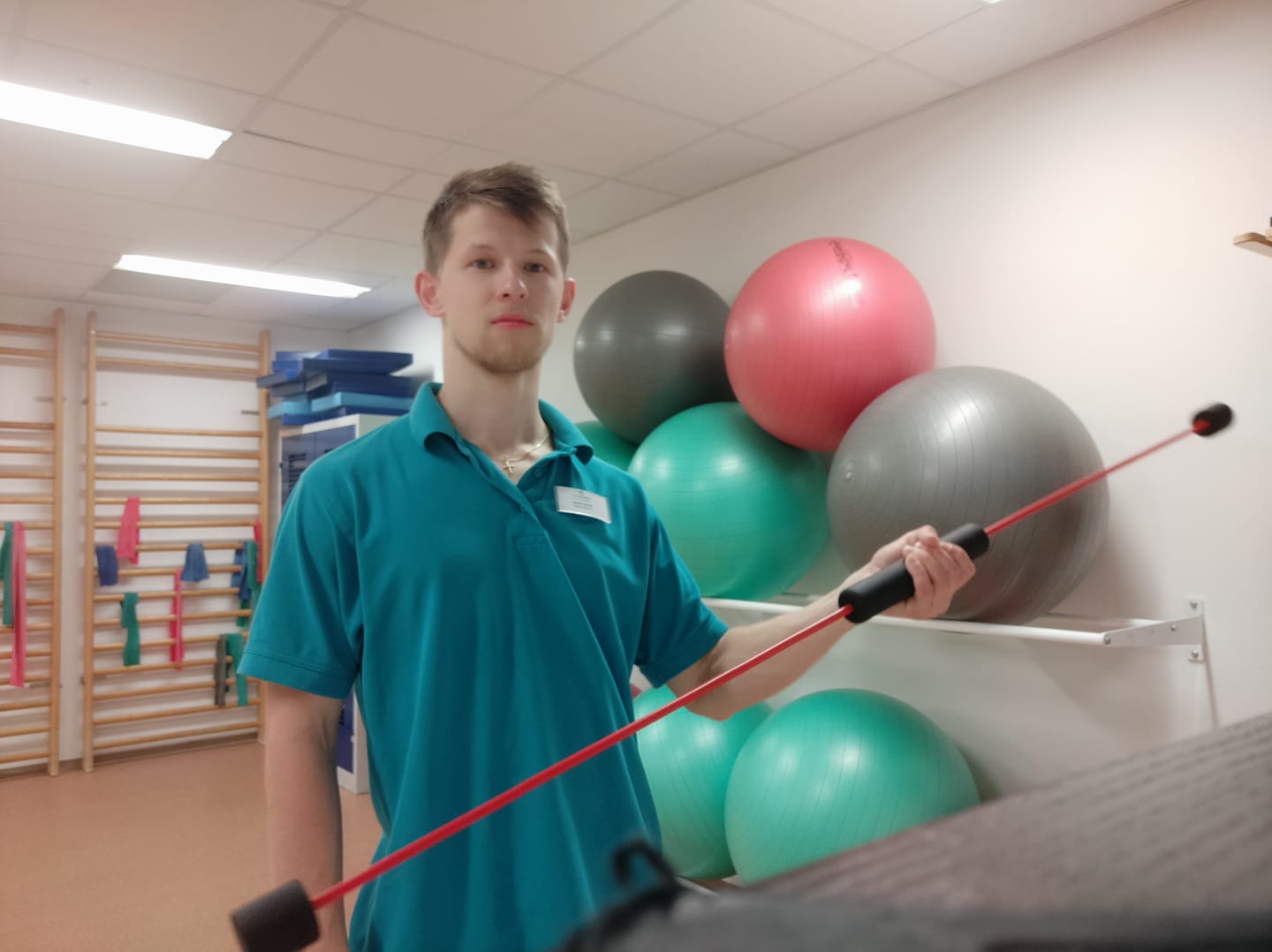3. What was your experience with the process of recognizing your education in Austria? What advice would you give to other healthcare professionals going through this process? The experience was truly interesting. The process of recognizing education is indeed lengthy, and sometimes one has to go through things that ultimately aren't needed in the job. Specifically, I would mention the need to complete a lymphatic drainage massage course, which I needed for my education to be recognized, but in the end, I don't need it at work since performing LM is not part of my job duties. A positive aspect was that I graduated with a German language exam, which certainly helped me a lot in the recognition process.
4. How would you describe your first day at work in Austria? What were your first impressions? Just like in any job, the first days were a bit stressful, especially regarding communication. Even though I'm not a complete novice in German, communication was challenging at first. However, the very kind approach of the staff eased this stress relatively quickly, and I gradually started to feel more confident.
5. What do you consider the main advantages of working in Austria? Did you face any significant challenges? If so, how did you overcome them? Certainly, it's the higher standard of living. Specifically, in this job, I have accommodation and meals relatively free, 13th and 14th salaries, which is definitely a huge advantage. The work is sometimes demanding in terms of job duties. I work almost every day from 7:30 – 17:00, and there are sometimes really many exercises. It also depends on how these exercises are combined, whether I'm working with an individual or a group of people. However, over time one gets used to it, which happened, and for a young person like me, it's certainly not a problem.
6. What are your personal experiences with living in Austria outside of work? What do you like most about this country? The nature and mountains here are very beautiful. Whenever I have free time (which is not much during the week), especially on Sundays, I go to explore the beauty that these regions offer. After work, which I usually finish around 17:00 - 18:00, I don't have much time left, so I try to use it for exercise and relaxation, as I have access to a pool and sauna. I have been working in Austria for only 5 months so far, so I cannot comprehensively evaluate life in this place yet, but so far I am really satisfied. What I like the most is when I manage to learn something new during the day, whether in the field of a foreign language or at work.
7. What advice would you give to someone considering working in Austrian healthcare through our agency? What would you like to tell potential applicants about what they can expect and how to prepare? It is certainly important to have at least some basics in the foreign language, a high school diploma, or a basic course, but ultimately there are not extreme demands on its mastery. It was more stressful to go directly to Austria at the beginning and handle various documents with German-speaking staff. I had never arranged work abroad before, nor through an agency. The duration of the recognition of education might deter someone, but the friendly approach from the agency and the willingness to explain everything helped one understand and accept the situation.
8. What are your plans for the future? Do you plan to stay in Austria, or do you want to return home (or to another country)? I plan to stay here at least for this year. I will see what happens next and what the future brings. I will probably remain abroad. Whether in this or another sector, I do not know yet. But I think I will not return to Slovakia anytime soon. Physiotherapy is a great field, and I believe it has enormous potential anywhere in the world. I definitely want to return to Slovakia someday, but when, I do not know at all.
